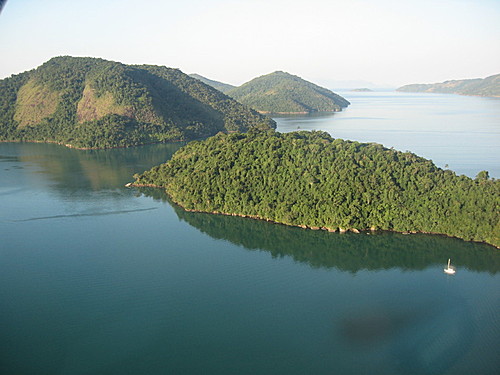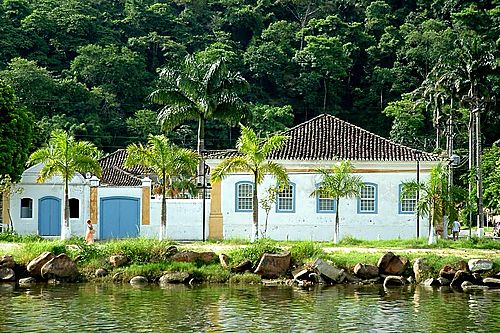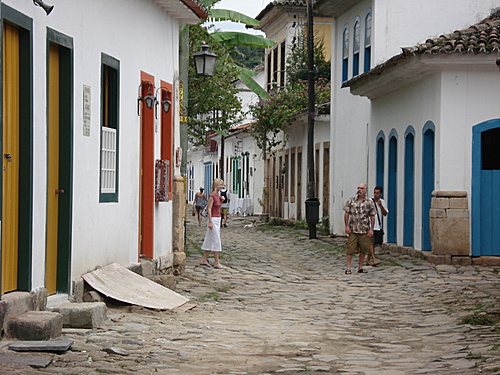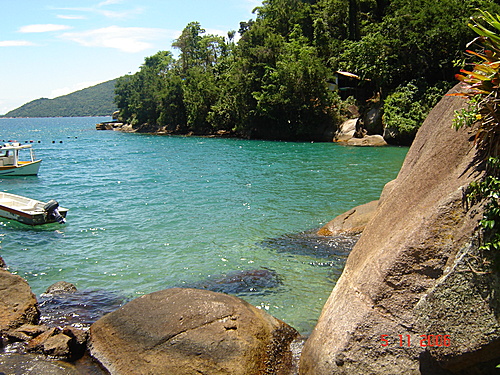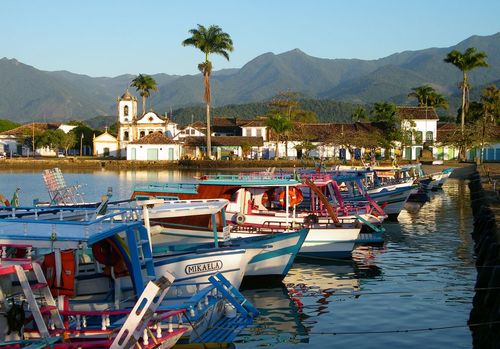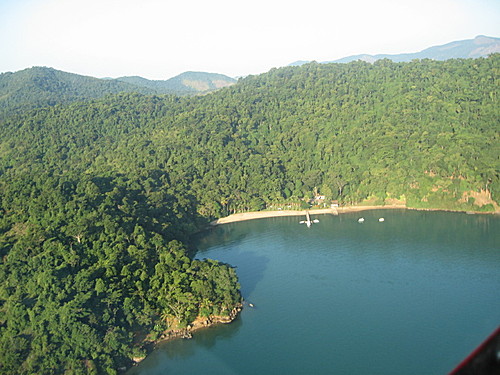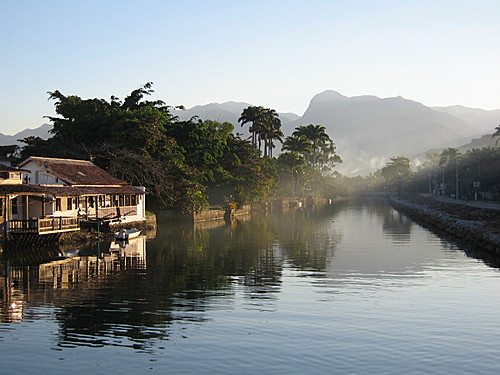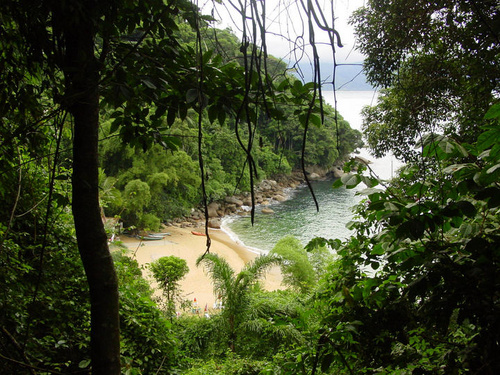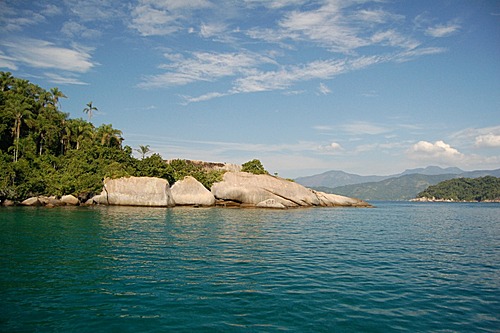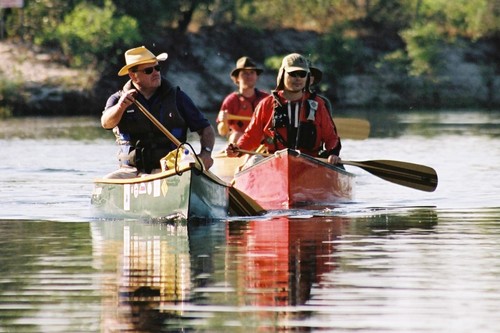
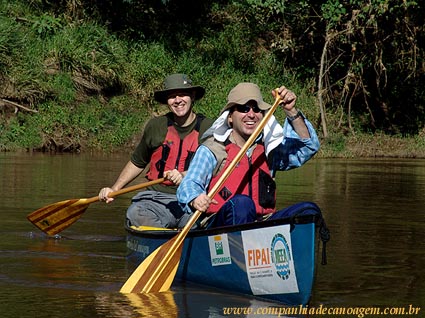
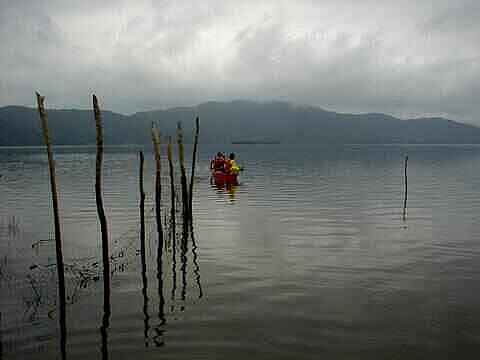

SAFETY
Leaving your home country and embarking into a wilderness paddling trip in a distant place is not a simple task. We know it because we´ve done it! Worries vary from clearing Immigration at the arrival airport to "what sort of food will we have in the camp". Worring is natural (and good!), and it will be your host´s duty (responsability) to eliminate all these worries, one by one, day by day, to give you the best solutions available and to turn your paddling trip into something that you will never forget, "just" because of all the perfect moments that you shared together.
We know that there is no fun without safety! Travelling abroad for a paddling trip is adventure enough, so you really don´t need any extra and unexpected event to happen. That´s why paddling travelers always look for local guides/outfitters in order to help organize their trips, right? Yes, it is that simple!
Here at CanoaCanadense we plan all our trips under a dynamic safety system called SGS - Sistema de Gestão de Segurança - where all details are exaustively and continuously tested in order to maximize safety and pleasure for our clients.
With all that in mind, here are some answers for the most common questions we receive regarding safety (and comfort) issues in our trips. Please feel free to send others you may have too! It will be a pleasure to reply and also post them here.
1) Will there be somebody waiting for the group/me at the meeting point/airport? YES, your guide will always be there with at least one hour in advance. Just look for a guy holding a paddle and a chart with your names on it! He will always try to be right in front of the "arrivals-gate" .
2) What about the hotels? Are they good? In larger cities we usually look for hotels of a known international group as Accor Hotels (Ibis), that are good, simple and efficient. Just like a Big-Mac, you know what you will get wherever you are! On smaller cities and remote places we always look for the best lodging available, as accommodations naturally tend to get simpler.
3) I´m allergic to milk and cheese. Is there a problem? No, unless you forget to mention it in the medical chart that you will have to fill with your reservation. We can plan specific menus to persons with any sort of allergy based on the informations given on the medical charts.
4) Are there too many bugs? There are usually two "waves" of bugs (mainly mosquitos) during the day: from 6 am to 8 am, and from around 6 pm to 7 pm. Deet based repelents work fine with most bugs in the tropics, but look for a brand with at least 35% Deet. As the afternoon wave is quite short, it´s not unusual to get inside your tent and wait just a bit (not a bite!).
5) Is it safe to hike around the camps? We will usually camp on wild / remote areas where we cannot predict the presence (or not) of dangers like snakes - probably the only real danger around!. In case you like to hike, bring some sort of hard leg snake-protection to wear over your pants/legs or long thick snake-proof-leather boots. You can find these protectors on almost any good outdoor equipment store. Of course this will not substitute attention and higher care from your part while walking!
6) I´m really scared of piranhas and caymans. Don´t worry, they are really scared of you too! Piranhas get dangerous/voracious ONLY when trapped in small closed/drying ponds formed during the dry season, where food suply is scarce. We will paddle along rivers where piranhas and caymans can easily find food, offering almost no risk to us. We just recomend that you do not swim too far from the beaches and that you avoid producing much turbulence while in the water. One more real danger in the northern brazilian rivers are stingrays, but our guides will show you a simple technique to avoid any problems with them.
7) I´m over 57 years old and I´m not sure if I can keep up with the group´s pace. We plan our trips with an average of 25km (around 14 miles) per paddling day, that is quite a low average. We understand that you came all the way from your country to Brazil to explore a different environment, not to train for a canoe marathon back home. With that in mind, there is no reason to rush, and we can spend some extra time visiting secluded bays and branches of the main river. In case you like sport-fishing, bring your equipment (don´t forget to ask for your fishing license with your trip reservation!). We also recommend that you bring a good photographic equipment, as the opportunities for great pictures are quite abundant.
8) I never paddled a canoe or a kayak. Can I get along? Almost all of our destinations can be classified as "novice-apt", but we strongly recommend that you have at least some basic experience in paddling a canoe/kayak before getting into a multi-day trip abroad like ours. Look for some introductory course on paddling from your local canoeing association, like American Canoe Association (ACA-US) or British Canoeing Union (BCU-UK) etc.
9) I have no whitewater training/experience. Is that ok? Yes! Right now we are not offering any destination with whitewater or high technical difficulties involved. We may add this sort of trip in the future to our catalogue, but we will make sure that you find a clear remark on this on the trip´s description. Some basic experience on paddling and wilderness camping is all that you need to fully enjoy our trips.
10) When you say "wilderness camping" you mean "no bathrooms"? Yes, no bathrooms, no hot showers, no electricity and no internet access (unless you bring that ultimate satellite modem gadget!). But I´m sure that you will be more than happy to trade some of the usual urban "conforts" for a night around the campfire and under billions of the southern stars.
11) My spanish is limited to "hasta la vista babie". Will I be able to communicate? The official language in Brazil is the "brazilian-portuguese" - yes, you are right, there are similarities with the spanish. But all our guides are able to speak/listen/read (at least) in basic english, so we can guarantee that you will be able to communicate (assuming you also speak some english, of course!).
12) My family will be travelling with me, but my wife and small daughter cannot take part of the paddling trip. Can you recommend some other activities to them? Yes, of course. Just tell us what sort of trip they would like and we will be happy to find some options from third parties to send to you. There are some fantastic beach-resorts along the brazilian coast, or maybe visit the famous Iguaçu Falls.... Thousands of options! Literally....
13) What if something really bad happens on the way? A stroke, a snake-bite, a serious head-injury etc... Really bad things can happen almost anywhere, including in a wilderness trip. The main difference is that, while in the wilderness, reaching a hospital can take longer than expected/needed due to the intrinsic remoteness of where you are. Because of these difficulties, we really expect that all participants take MUCH more care with themselves about small accidents and unnecessary risks during the trips. For smaller problems, all our guides are trained on First Aid Techniques and carry a comprehensive First Aid Kit. For larger problems, the ones that reach beyond the First Aid Techniques, the guides carry a PLB/Satellite Beacon device that can deploy a satellite signal to a SAR Team of the Brazilian Army. Of course all this depends on sat-signals, covered areas and many other technical details that may limit the efficiency of the method/beacon. What brings us back to the most important safety rule in the wilderness: prevention through attention!
14) Storms and bad weather. What if? Extreme conditions can delay almost anything, including a wilderness paddling trip. Based on the "safety first" rule, your guide will decide when it is time to stop or to restart a trip because of weather changes/conditions. His decisions are based on many factors including knowledge, local experience, group analysis, equipment safety etc, and are to be followed by all participants without hesitation.
15) What equipments will we use? We use only top-brand/quality equipments on our trips. All "personal" equipments like tents, dry-bags, sleeping bags/mats (when included) are completely higienized after each trip and changed for new ones every 5 trips. "Permanent" materials like canoes/kayaks, paddles, PFDs etc are analized for conditions prior to each trip in order to provide the necessary safety and comfort. Any significant flaws and the equipment is substituted by a new one.
16) What sort of food will we have at camps? In order to give you a full experience (or taste!) in our trips, most of them include ou exclusive "South American Menu", where we cook a traditional dish of each south american country every camp night. You will also have chance to drink wines from the major south-american wineries from Chile, Argentina and Brazil. As usual, dinners and breakfasts are more elaborate than lunchs as there is more time to prepare. In the morning you can also refill your "pockets" with our special "grubs" with different dehydrated tropical fruits and nuts to eat along the day.
17) Do we have to take extra care with the sun there? We are in a tropical country what, naturally, means more sun/higher temperatures. Most river trips happen during the winter (dry) months of June to August, but that doesn´t mean that we will have cold days. Maybe some cold nights! In the northern-brazilian winter you can expect 95% chance of blue skyes and hot sun every day, what means that you have to bring a good amount of high protection sunscreen... and a good hat. There is nothing worse than getting sunburned right in the initial days of your trip and suffering the disconforts of it for the remaining days. You will have chance to gradually develop a nice tan, so don´t exagerate on the first days. You will see your guide applying a 50 SPF sunscreen every morning...but just because he couldn´t find the 80SPF lotion!!!
18) We hear a lot about "unsafe water" to drink on tropical countries. What do you recomend/do about that? Safe or unsafe water depends on the given pre-treatment! Drinking water from a pond without any pre-treatment can be dangerous anywhere in the world! On poorer parts of undeveloped countries you may find untreated water coming from a tap, hence the unsafe label/risk. Bottled mineral water is usually safe, treated filtered river water is safe, urban treated tap-water is safe.... While on "road-urban" sections of our trips we usually drink mineral bottled water... Since we will travel remote areas, on the river-sections we will drink filtered and chemically treated river water. To filter the huge amount of water needed by the group everyday we use a large filter with a 1 micron mesh special tissue, filling a 20 liters recipient where we then aply a iodine/chlorine based chemical treatment. After 10 minutes everybody is invited to fill their particular bottles from this safe source to use along the day. There is no need to bring a particular filter, but if you prefer to do so, please feel more than free to do it.
19) Can you arrange the trips for a very small group (1 to 5 participants)? Yes, we can arrange that, but the total costs of the trip (that do not drop proportionally) will have to be splitted among fewer people, increasing the individual price by 2 to 5 times. Please get in contact and we will be happy to quote a small-group trip to you.
20) . .
-----------------------------------------------------
General Information for all our destinations:
1) All our International Group Services are based on full outfitting and full guiding services. All you have to bring are your clothes, sleeping bag/mat and personal belongings. We will send you a complete information package (including a list of what to bring!) upon your booking.
2) From the moment you step outside your flight from home to the moment we say goodbye at the airport gate you will be under the care and attention of our guides, including all land transportation, lodging, meals (except beverages), equipments etc.
3) Flights (+ taxes) from/to your home country are not included, but we will be more than pleased to help you find the best services with the lowest rates.
4) Valid passports/Visas are to be self-provided. We have a support agent (hot-line) in São Paulo (where most customers will clear Immigration/Customs), but he will not be able to solve problems with passports/visas.
5) Personal or group travel insurances are not included. A trip-specific full coverage personal insurance with your particular insurance company is advisable.
6) Yellow-fever vaccines are obligatory 20 days prior to departure from your home-country to any tropical country, including Brazil. Bring your certificate inside your passport.
7) Children over 10 years old are more than welcome.
8) As expected, we will be travelling on wild country with no easy exit-rescuing facilities. For your safety, all our expedition groups carry a Satellite Beacon Device that can transmit our position and, under extreme necessity, it can also activate emergency helicopter rescue services. A Term of Liability will have to be filled by each participant prior to the trip, as well as a full medical information chart including personal details on food preferences, allergies, current treatments/medicines etc..
9) Sorry, no pets allowed.

